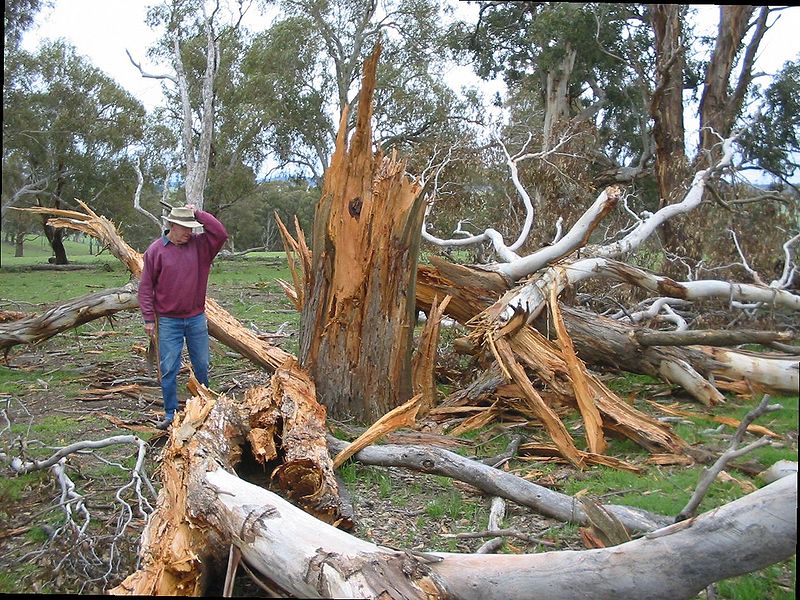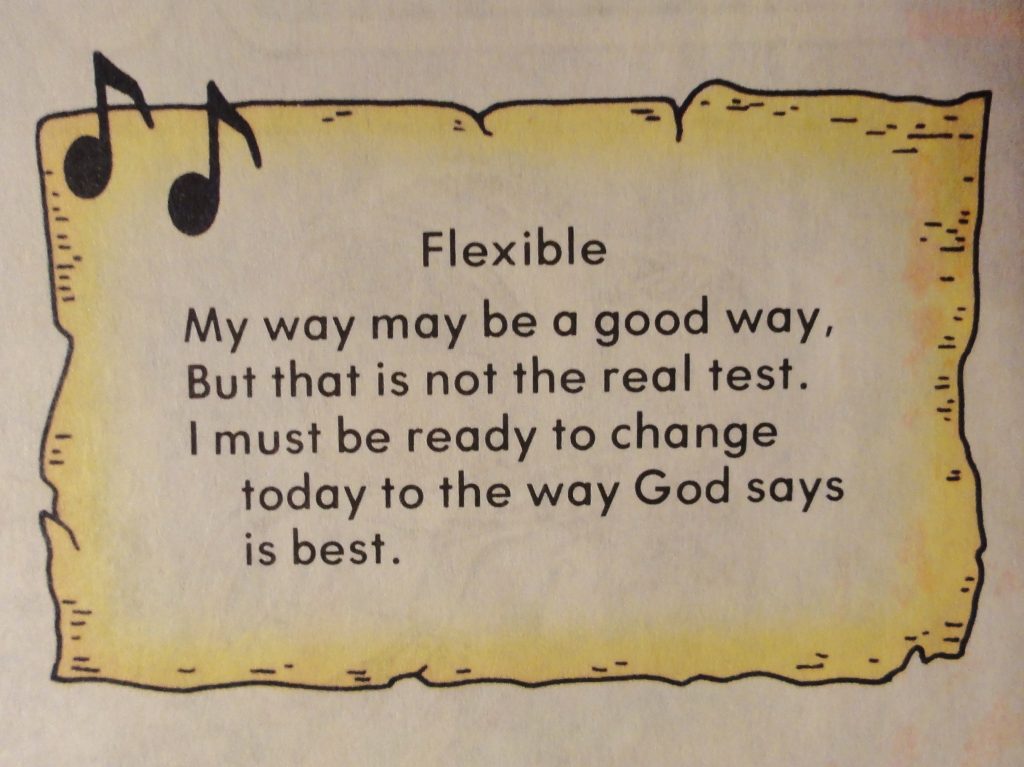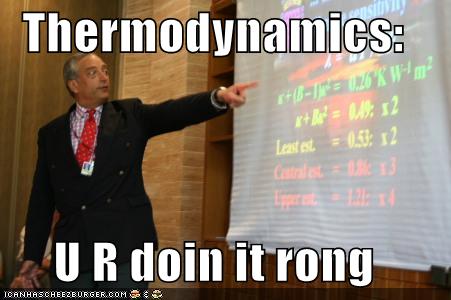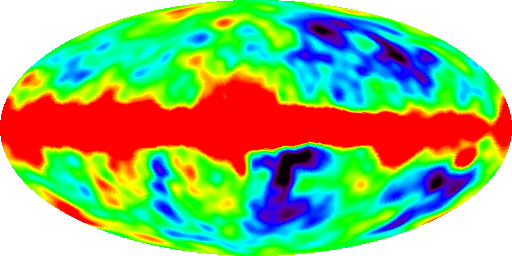We’re back to Science of the Physical Creation’s chemistry section, which has proved to be a series of warm desert islands devoid of nonsense, where we bask in delightful rays of pure science, only to suddenly find ourselves mired in stinky bogs of creationist crap. The pattern is not to be broken in this edition.
We shall pass lightly over the pages explaining the rate and types of chemical reactions, which contain only one forlorn attempt to wedge God in:
Your own body has thousands of different types of catalysts called enzymes that God designed to regulate chemical processes in the human body.
Okay, Sparky. Whatever you need to tell yourself in order to get the science down the hatch. I know you SPC writers are getting desperate, though. Mindless, automatic chemical processes don’t lend a lot of support to the idea of a God who cares about you sooo very much that he’ll send you to Hell for not believing in him properly, and/or for playing with with your naughty bits.
Salts, Acids, and Bases are dealt with without recourse to a deity. Electrochemical reactions, anodes and cathodes, and batteries merit no mention of the Lord. I am disappoint. You know the ACE people would have found a way to work God in there.
The SPC writers even make it through a long discussion of organic chemistry without mentioning God. Of course, they also carefully avoid mentioning that we’ve found organic molecules in space, and I can’t help feeling they’re afraid to mention that molecules containing carbon aren’t unique to Earth.
But then we get to biochemistry. And of course they lose all sense of self-control. They begin by breathlessly quoting Psalm 139:14. After an introduction that admits that cells operate on ordinary chemical reactions despite how complex they seem, the authors have to finish by burbling about how biochemistry “reveals the marvelous mind of our Creator at every turn.”
Uh-huh. Sure. You know, considering bacteria dramatically outnumber every person on this planet, I’ve got a few suspicious about the mind of this creator of theirs.
After all that gushing, they go a long time not mentioning God. They talk about carbohydrates, and lipids, and proteins, and only at the end of several pages of this do they tack on a pathetic “God designed cells to operate very efficiently.” There’s also a tiny nod to creationism in the info box about the enzyme papain, when they say it’s “designed” for cutting protein molecules. All very weak tea.
They they’re on to DNA, and they start raising that creationist flag high. In their 5-point list of things DNA does, they say
5. It controls heredity (the passing of traits from one generation to another), ensuring that all living things reproduce after their kind.
Those of you not completely familiar with creationist crap might have missed the dog whistle, but “kinds” are a creationist concept, arising from Genesis and all its blather about God creating thus-and-so after their own kind.
Then they hit us with another dog whistle: “DNA is a marvel of precision and design…”
Ah, yes. Such precision. Much design. Wow.
After a basic explanation of what DNA is and how it works, we arrive at the info box for “Mutations and Evolution,” which is a full page of creationist pablum. It contains such gems as:
God designed several mechanisms to ensure that DNA is copied correctly. Due to the curse of sin upon creation, however, these mechanisms occasionally make mistakes.
Of course. The old creationist cop-out: God isn’t a shitty designer! He designed everything perfectly! It’s just that this chick and her hubby ate some fruit off the wrong tree and God got all pissed and broke everything, which is why babies die of horrific genetic errors! Brilliant. This is obviously such a better explanation than “Shit breaks because natural processes can’t plan ahead.”

They go on to emphasize How Terrible errors in replication are because in Creationist Land, there can be no beneficial mutations. They can’t conceive of the idea that a mutation that disables a gene, or can cause certain genetic diseases like sickle cell anemia, can actually confer a survival advantage (like making a person resistant to HIV or malaria). They ignore the fact that evolution is a numbers game: some mutations will do unexpected good things, conferring some small benefit, and those benefits accrue over time in the lineages that are winning the genetic lottery.
The of course harp on the Second Law of Thermodynamics again, to which I say “Not a closed system, asshats!” They bleat about random processes, to which I yell, “Natural selection, damn it!”
They try to talk about “taking a well-written essay and randomly scrambling letters to see if it improves the writing style,” which is a slick but invalid way to demonstrate the principles of mutation and selection. No, if you were being honest, you’d take thousands of copies of each essay, make random but small changes to the punctuation, spelling, word order, etc. (but no more than, say, 3 changes per essay), then have them graded by distracted professors. Toss out all but a tiny number of the Ds and Fs, keep most of the Cs and aboves. Make multiple copies of the survivors. Separate some of them into isolated groups. Repeat billions of times. Eventually, you’ll end up with whole populations of excellent essays, and good enough essays, and a few that survive a first or second reading but would get tossed out on a fourth. You’d have a few essays that look like new and improved versions of the ancestor. You’d have entire sets of essays that bear little resemblance to it, but are solid in their own right. And you’d have a few that look completely different, yet read very well.
That’s more like evolution, people. And I’m still simplifying the shit out of it.
They go on to point to all sorts of terrible diseases to prove that mutations are never good, but fail to point out the mutant people and pets who are blessed with beneficial mutations. Then they pretend the science of evolution isn’t validated by countless experiments. Then they pretend they’ve won. So sadly typical. Creationists have to cheat. Otherwise, they can’t win.
The section on chemistry ends with a brief bit about metabolism, which has a sentence stuck in to make it look all designed and not a result of mindless natural processes: “However, God wisely designed the human body to trap this ‘waste’ heat in order to maintain its temperature near 98.6°F…” See, God loves us mammals, but doesn’t give a fuck about reptiles and shit.
And that’s it for chemistry according to creationists. Next, we’ll see what the SPC folks have got to say about physics. It should be a scream.





